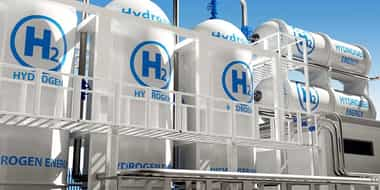
Dec 16, 2024
Blog Energy & Sustainability Electric Vehicle Battery Recycling Market Growth: From Waste to Wealth
The rapid rise of electric vehicles (EVs) is changing how we commute and sparking a revolution in resource management. With EV adoption soaring worldwide, the electric vehicle battery reuse and recycling market is gaining momentum. This sector is critical for ensuring sustainable growth in the EV industry and addressing the environmental challenges used batteries pose.

According to BCC Research, the global market for electric vehicle battery reuse and recycling is expected to grow from $8.0 billion in 2024 to $28.1 billion by the end of 2029 at a compound annual growth rate (CAGR) of 28.5% during the forecast period of 2024 to 2029.
Electric vehicle batteries, primarily lithium-ion, power EVs during their lifespan. However, once these batteries lose efficiency (usually after 8-10 years), they aren't entirely useless. Battery reuse involves repurposing these cells for other applications, such as renewable energy storage systems. On the other hand, recycling extracts valuable materials like lithium, cobalt, and nickel from spent batteries, reducing the need for new mining operations and minimizing environmental impacts.
Reusing and recycling create a circular economy where resources are conserved, waste is reduced, and environmental sustainability is prioritized.
Several factors are fueling the growth of the EV battery reuse and recycling market:
The global market for electric vehicle battery reuse and recycling is expected to grow from $8.0 billion in 2024 and is projected to reach $28.1 billion by the end of 2029, at a compound annual growth rate (CAGR) of 28.5% during the forecast period of 2024 to 2029.
The EV battery reuse and recycling market offers immense potential but comes with challenges. On the opportunity side, governments worldwide are introducing policies and incentives to promote recycling, while innovations in battery chemistry are improving recyclability.
However, challenges like the high cost of recycling infrastructure, inconsistent regulations across regions, and the technical complexity of battery disassembly need to be addressed. Collaboration between governments, automakers, and recycling companies will be essential to overcome these hurdles.
The global EV battery reuse and recycling market is poised for exponential growth, driven by environmental urgency and economic necessity. By 2030, the market is expected to become a cornerstone of the EV industry, ensuring that the transition to sustainable transportation remains green.
The global electric vehicle battery reuse and recycling market is poised for significant growth, driven by the rising adoption of EVs and increasing demand for sustainable resource management. As this market evolves, it will play a pivotal role in reducing EVs' environmental footprint and creating a greener future for transportation.
Q1. Why is battery recycling important for electric vehicles?
Recycling helps recover valuable materials, reduces environmental pollution, and ensures the sustainable growth of the EV industry by minimizing reliance on raw material extraction.
Q2. What happens to EV batteries after they can no longer power a vehicle?
Many EV batteries are repurposed for second-life applications like energy storage systems. When they reach the end of their usable life, they are recycled to recover materials for new batteries.
Q3. Which materials can be recovered from EV batteries?
Lithium, cobalt, nickel, and manganese can be recovered during recycling and reused in manufacturing new batteries.
Q4. What challenges does the EV battery recycling market face?
Key challenges include high recycling costs, regional regulatory inconsistencies, and the technical complexity of handling and processing used batteries.
Q5. How do automakers contribute to battery recycling efforts?
Automakers support recycling by investing in advanced technologies, partnering with recycling companies, and designing easier to disassemble and recycle batteries.
Consider becoming a member of the BCC Research library and gain access to our full catalog of market research reports in your industry. Not seeing what you are looking for? We offer custom solutions too, including our new product line: Custom Intelligence Services.
Contact us today to find out more.

Sandeep is a Senior Executive in Marketing Operations at BCC Research, proficiently serving as a graphic designer and content creative specialist. His expertise extends to AutoCAD and Revit, and he has made valuable contributions to the event industry with his design skills.

Electrical switches—devices that control the flow of electricity—are the backbon...

As the world accelerates toward net-zero emissions, hydrogen, and ammonia have e...

Hydrogen technology is widely used across industries like glass, fertilizer, met...

We are your trusted research partner, providing actionable insights and custom consulting across life sciences, advanced materials, and technology. Allow BCC Research to nurture your smartest business decisions today, tomorrow, and beyond.
Contact UsBCC Research provides objective, unbiased measurement and assessment of market opportunities with detailed market research reports. Our experienced industry analysts assess growth opportunities, market sizing, technologies, applications, supply chains and companies with the singular goal of helping you make informed business decisions, free of noise and hype.